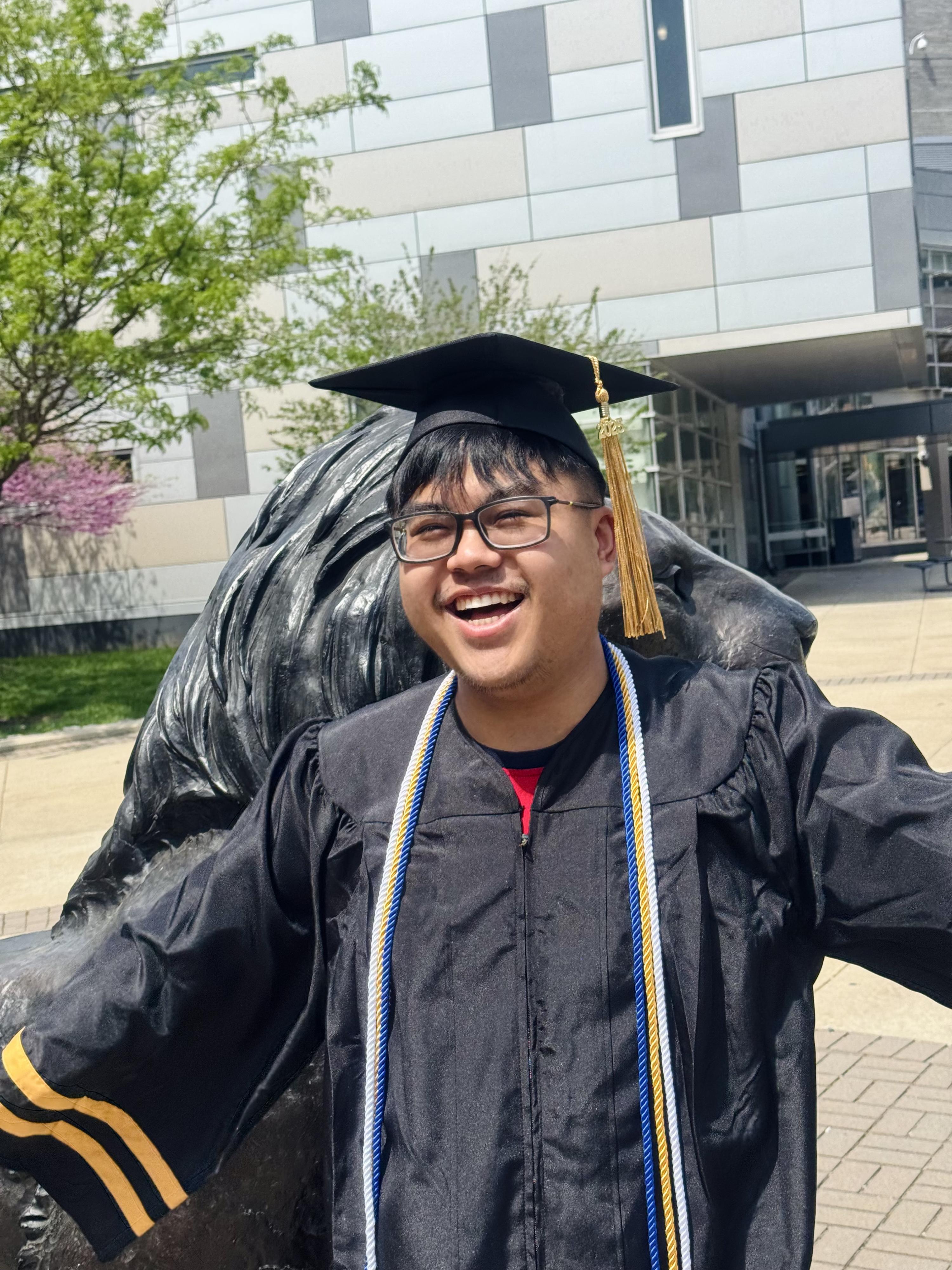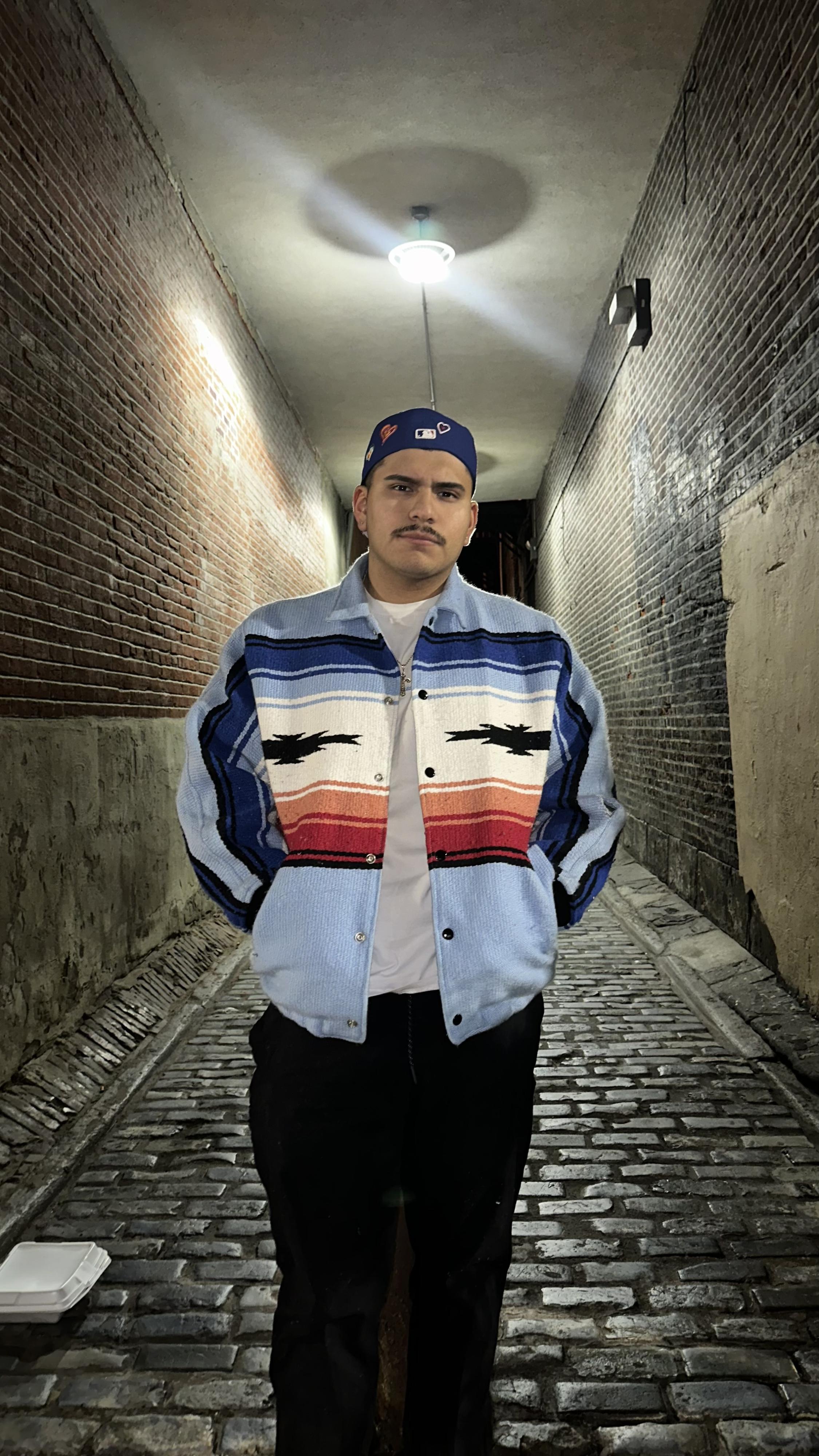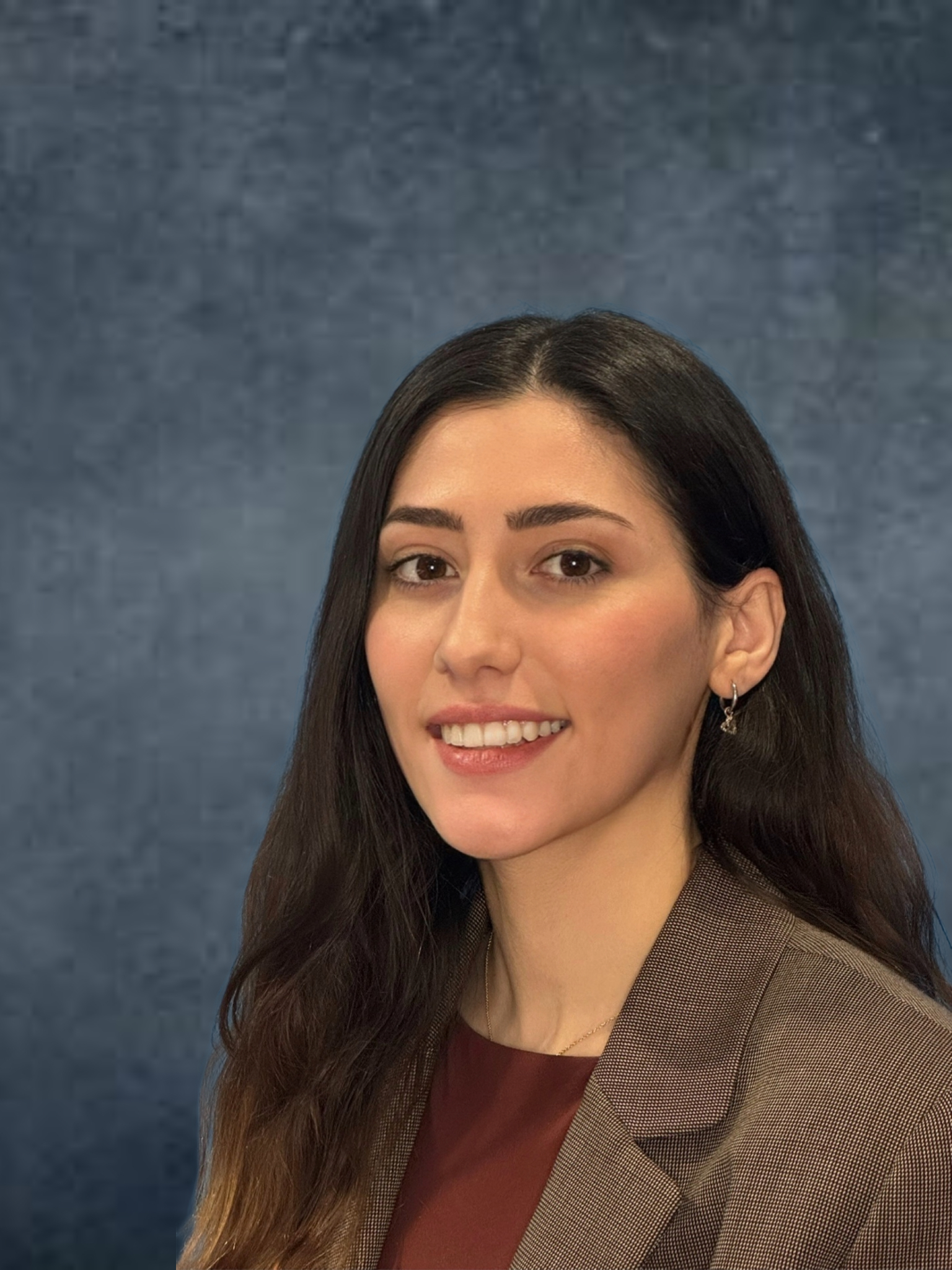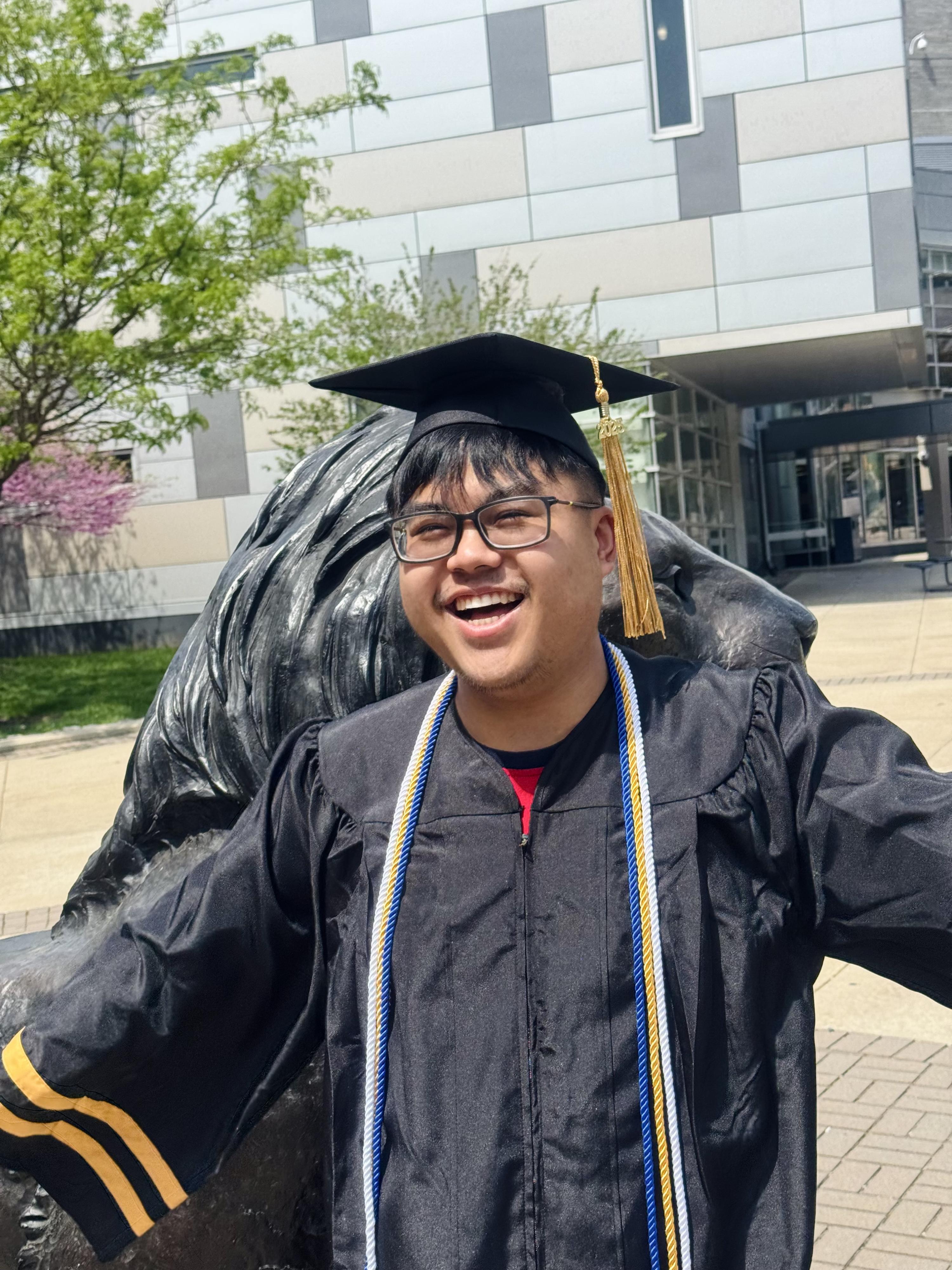.jpg)
In her two years at Community College of Philadelphia, Angie Orozco-Rasique has a list of accomplishments that could fill a book. To name a few: She is student trustee and president of the Student Government Association, she founded the Period Poverty Project to promote menstrual and reproductive wellness by establishing four 'menstruation stations' on campus, and she is vice president of the WEALTH•NESS financial literacy club.
As she turns the page on her time at CCP, Angie says she is “ready for a new chapter.”
She will be graduating in May with a Business-General major, having maintained a strong 4.0 GPA throughout all of college. Although she isn’t ready to announce where she plans to continue her learning, she is interested in pursuing an education in fields that center advocacy. So much of her extracurricular work—both on campus and off—focuses on supporting others and uplifting communities.
At CCP, she is secretary for the Latin American Student Organization, and she is an anti-violence peer leader with the It’s On Us initiative—that’s in addition to her leadership roles in student government, the Period Poverty Project, and WEALTH•NESS.
Off campus, Angie is a fellow with the gender-equity nonprofit Women’s Way (where she is also associate producer on the organization’s podcast), an intern at the Steven Center of Innovation and Finance at University of Pennsylvania’s Wharton School, an intern at the nonprofit Campaign for Working Families, a research assistant at Penn’s Graduate School of Education, and a co-lead at the local arm of Students Against Period Poverty. She also finds time to volunteer on the side.
“I really enjoy the work I do,” Angie says. “I feel privileged to do these things. I know that people can inspire me, but also, I’ve learned that I can inspire other people.”
Many of the best advocates can point to people who advocated for them along the way. One of the biggest supports she had at the College was the Gender and Sexuality Resource Center. She says Kelly Lake and Melissa Fogg, who are in charge of the center, “have always been there for me.”
“They always just propelled me to keep moving forward despite anything going on,” she says. “Whether it was in negative time in my life, a neutral time, or a great time. I really appreciate the people there. They’re the best.”
The Gender and Sexuality Resource center helped set Angie up with a grant through Parx Casino to start the Period Poverty Project, which now provides students with free pads and tampons as well as support groups and a safe place for community.
Angie recently appeared in a CBS News story with Kelly and Melissa to show off the College’s Health Jawn, a free reproductive health vending machine at CCP. The Period Poverty Project helps keep the vending machine supplied with menstrual health items.
Another major resource for Angie, and part of the reason she enrolled at CCP in the first place, is the Octavius Catto Scholarship. While a student at Central High School, she saw a poster for the Catto Scholarship.
“I always walked past it,” she says, “but then one day I was like, ‘oh my gosh, I have to actually commit to a college.’ I had a few options around the city, but I didn’t really want to pay that much, so I took a good look at that poster.”
She went to her counselor and asked what she needed to do. From there, she attended an express enrollment event “and then it was just history from there.”
“I need to give a shoutout to Catto,” she says. “I have a Catto coach. His name is Greg Nelson. Catto is always there for me. I recently got a Catto award, which was so awesome. If they ever need a guest speaker—either Catto or the Gender and Sexuality Resource Center—I’m always on call.”
Angie credits CCP with giving her the freedom and support to take on so many projects while keeping up with her studies.
“It was inspiring in some ways because it did teach me I can step into these leadership roles and thrive,” she says. “I think it taught me a lot about how to navigate the real world because I met and learned to appreciate a diverse set of people.”
Earlier this year, Angie was named a semifinalist for the prestigious Jack Kent Cooke Undergraduate Transfer Scholarship, a highly selective, national program for community college students seeking to complete their bachelor’s degrees at four-year colleges or universities. She was one of five CCP students selected as a semifinalist and one of 467 semifinalists in the nation.




.png)

.JPG)




.jpg)



